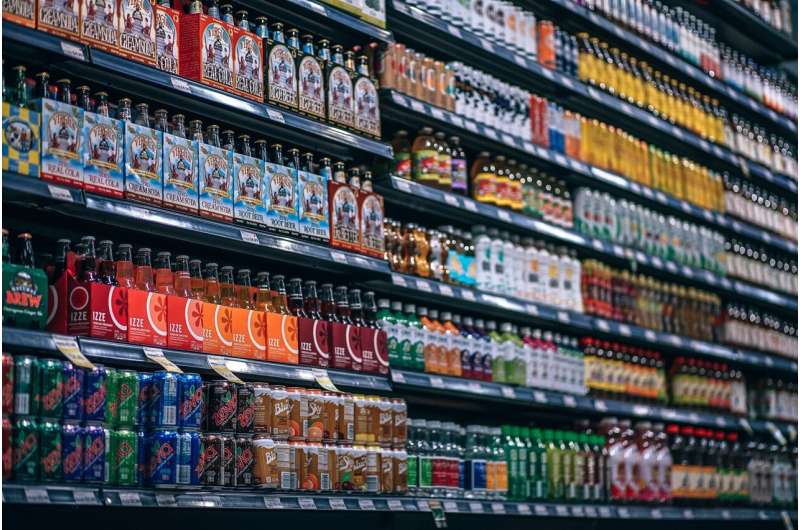
Two new studies published by researchers at the University of Illinois Chicago provide evidence that public policies to reduce consumption of added sugars through taxes on sugar-sweetened beverages are effective and sustainable.
Sugar-sweetened beverages like soda, juice, and energy and sports drinks, are the largest contributor of added sugars in American diets. Overconsumption of added sugars significantly contributes to obesity and is associated with comorbidities like diabetes, which can increase cancer risks and result in more severe COVID-19 illness. Currently, more than 50% of adults and 65% of children consume more added sugars than recommended.
Sugar-sweetened beverage taxes, often called soda taxes, aim to provide financial incentives to consumers choosing healthier beverages while also funding public health programs.
The research team has been studying the implementation of sugar-sweetened beverage taxes throughout the U.S. and the new studies analyzed data from Seattle, where the tax was implemented in 2018. The Seattle data was compared with data from Portland, Oregon, a city of similar size and demographics but without a sugar-sweetened beverage tax.
“While we and others have published a number of studies on the short-term effects of SSB taxes where they have been implemented in the U.S., these taxes are still relatively new, and we need scientific data on longer-term impacts to understand if the policies have the potential to generate sustained public health benefits,” said study lead author Lisa Powell, distinguished professor and director of health policy and administration in the UIC School of Public Health.
The studies are the first to comprehensively evaluate the tax’s long-term impact across all store types and across all beverages and sweets sold.
The researchers obtained Nielsen retail scanner data on unit sales and unit measurements, like fluid ounces or grams, of sugary beverages, sweets, and stand-alone sugar products in Seattle and Portland. Data included all sales from the available sample of food stores inclusive of supermarkets and mass merchandise stores, as well as grocery, drug, convenience and dollar stores—covering about 45% of all food store sales.
In a Journal of Public Health Policy study titled “Impact of a sugar-sweetened beverage tax two-year post-tax implementation in Seattle, Washington, United States,” Powell’s team looked specifically at the economic impacts of the tax after two years.
Analysis showed: the prices of taxed beverages increased by 1.04 cents per ounce, corresponding to a 59% tax pass-through rate; the volume sold of taxed beverages fell by 22%; and no cross-border shopping.
A JAMA Network Open study titled “Evaluation of Changes in Grams of Sugar Sold After the Implementation of the Seattle Sweetened Beverage Tax” focused on the impact of the tax on estimates of sugar sold after two years.
The researchers found that one year and two years after implementation, the tax created a 23% reduction in grams of sugar sold from taxed beverages. And while the analysis showed some offset from substitutions—a 4% increase in sugar sold from sweets in both years and an initial increase in grams of sugar sold from untaxed beverages in the first year only—there was a net 19% reduction in grams of sugar sold from taxed beverages at two-years post-tax.
Source: Read Full Article
